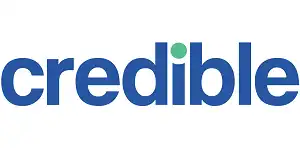Higher education has become a necessity. Degree holders have better odds in the job market, and the right degree is a great way to follow a passion and make yourself marketable at the same time.
But the costs of college and graduate school are only climbing upward. In order to afford your dreams, you may have to join the 45 million Americans who have student loans.
Borrowing to pay for an education is a definite financial risk, but it can be affordable and manageable if you do it wisely. Ultimately only you can make a decision —and preferably a highly considered decision — about whether you should go into debt to advance your education.
What are student loans?
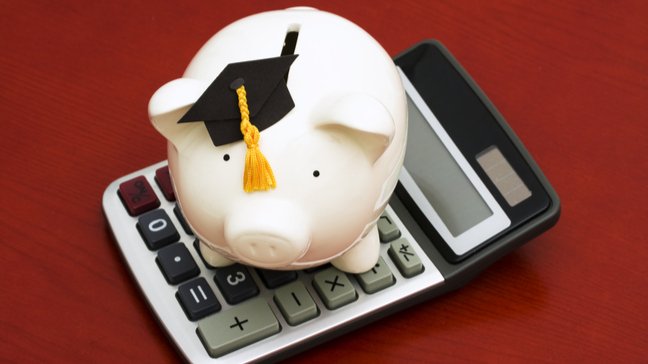
Student loans are sums of money you borrow for your education and then pay back over time — in most cases, with interest.
Loans will often be part of your financial aid offer from the school you attend. Look for grants and scholarships first, since those don’t have to be repaid. But if you don’t get a full ride, loans can make up the difference.
Types of student loans
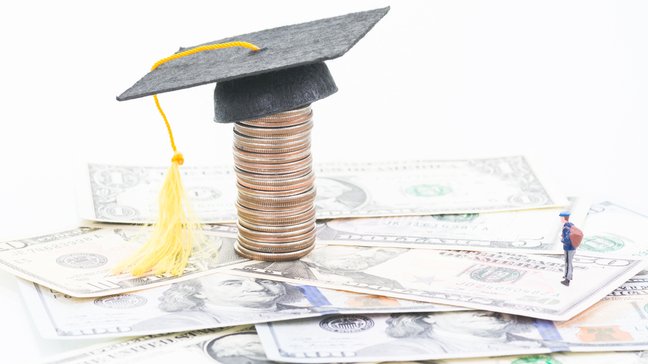
In the U.S., there are two categories of student loans: federal and private.
How do federal student loans work?
Federal student loans are offered by the federal government, and they account for about 92% of student loan debt in the United States.
There are different types of federal student loans available to different types of students, with varying loan terms.
Direct Subsidized Loans
With a subsidized loan, the government pays the interest while you’re in school and during any periods of deferment (“subsidizing” your education by offsetting the cost). Subsidized loans are available only to undergraduates with demonstrated financial need. The amount is capped to only cover your financial need, as determined by the FAFSA.
Direct Unsubsidized Loans
With an unsubsidized loan, the borrower is responsible for any interest that accrues while they’re in school and afterward. Unsubsidized loans are available to any undergraduate or graduate student. The amount is determined by the cost of attendance at your school and any other aid you’re receiving.
You may hear Direct Subsidized and Unsubsidized Loans referred to as Stafford Loans.
Direct PLUS Loans
The U.S. Department of Education offers Direct PLUS Loans to graduate or professional students. They require a credit check and decent credit history. The amount is intended to cover any expenses other aid does not cover.
Direct Consolidation Loans
If you have multiple federal loans, you can combine them into a single loan from a single servicer. The new loan is known as a Direct Consolidation Loan.
Some facts about federal loans:
- In most cases, you won’t need a co-signer.
- Unless you’re taking out a PLUS loan, you won’t need a credit check.
- Interest rates are usually fixed (they stay the same over the life of the loan).
- Interest is tax deductible.
How do private student loans work?
Private student loans come from lenders not affiliated with the government, such as a bank, a credit union, a school, or a state organization. The amount you can take out and the options for repayment are up to the lender.
Federal loans are typically a better option than private loans since private loans offer much less flexibility.
Some facts about private loans:
- You may have to begin payments while still in school.
- The loans may require a credit check and a co-signer.
- The interest rates can be variable (fluctuating with the financial market).
- Some private loan interest rates can be quite high.
- Interest might not be tax deductible.
How do you apply for student loans?
While you’re applying to schools, you’ll fill out a FAFSA, or Free Application for Federal Student Aid. Pay attention to the FAFSA deadlines, which change each year (the deadline is June 30, 2024 for the 2023-24 Academic Year). Usually, the FAFSA will be available starting in the fall for the next fall’s school year.
Applying for Federal Student Loans
The federal student aid website has a forecaster tool to predict what level of federal student aid you’ll be eligible for, and what your Expected Family Contribution (EFC) might be. This can give you an idea of how much you’ll likely need to pay out of pocket for your education, and it might also influence the schools you apply to.
When the time comes to fill out the FAFSA itself, gather your tax returns for the previous tax year, current bank and investment account statements, and pay stubs or employment info. If you’re a dependent student, use your parents’ or guardians’ financial information. If you’re an independent student, use your own.
If you’re admitted to a program, your school will send a financial aid offer that may include federal loans. Before receiving federal loan funds, you will:
- Complete entrance counseling either in person or online with a financial counselor. You’ll learn your rights and responsibilities as a borrower.
- Sign a Promissory Note or Master Promissory Note. This is a legally binding document that lists the terms and conditions under which you will repay the loan. Keep a copy of this document! You’ll need it later.
Applying for private student loans
You can apply for a private student loan directly with the lender, and you don’t need to fill out a FAFSA. Because private student loan interest rates can vary widely, it’s a good idea to compare a number of different lenders before applying.
You can compare multiple private loans simultaneously via a loan marketplace like Credible. With a loan marketplace you enter some of your personal information and you’ll be matched with a list of lenders that are likely to approve your loan.
Credible is an 100% free to use aggregator that checks personalized rates from multiple lenders to help find a loan that works best for you, with options for many different college and university degrees to fit your goals.
Rates starting at 4.07% fixed APR (with autopay)* and 4.98% Var. APR (with autopay) See Terms*.
- 100% free to use, done online
- Partners have no origination fees or prepayment penalties
- Close with a better rate than you prequalify for on Credible and get a $200 gift card. Terms Apply.
- Limited opportunities shared based on prequalification
The whole process with Credible takes just a few minutes and can all be done online. It’s a convenient way to check private lenders’ interest rates and loan terms side by side.
Some private lenders, like Stride Funding, offer ISAs (Income Share Agreements) to students rather than traditional interest-based loans. With an ISA you agree to pay your lender a set percentage of your income after graduation for a specific period of time. It’s a good idea to check ISA options if the interest rates you’re quoted for traditional private student loans are exorbitantly high.
» MORE: Read our full Credible review
What Is the maximum student loan amount?
Private loan amounts typically won’t exceed your school’s total cost of attendance. Your individual loan amount will be influenced by your credit score, existing debt levels, professional prospects in your field of study, and the financial strength of your cosigner.
Federal loan maximums vary as follows:
Undergrads
Direct Subsidized Loans and Direct Unsubsidized Loans
Undergraduate students can borrow up to $12,500 per year, up to an aggregate limit of up to $57,500. Specific maximums vary depending on the year of schooling and the student’s status as dependent or independent.
Grad students
Direct Unsubsidized Loans
Graduate students can borrow up to $20,500 annually and $138,500 aggregate.
Direct PLUS Loans
PLUS loans can cover the remainder of your college costs (the cost of attendance) not already covered by financial aid.
What’s the maximum amount you should actually borrow?
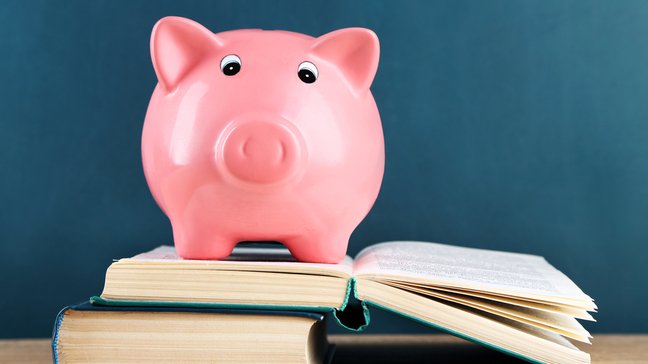
Just because you can borrow the maximum amount doesn’t mean you should.
The financial aid offer will estimate your living expenses, and you can turn down a loan or request a lower amount if you feel their estimate is too high. Borrow only what you need. It’s a good idea to calculate your estimated living expenses yourself, with a cushion for the unexpected.
One rule of thumb is not to take out more loans than the anticipated first year’s salary in your field. You can check out our list of the best salary information websites to get a ballpark salary expectation for your profession.
Remember, you’ll still be expected to pay back the loan even if you can’t find work in your field, or if your plans change.
What can student loans be used for?
Many students operate under the assumption that their loans can be used to pay for any living expense incurred while they are an enrolled student. They might be surprised to find out that the Federal Student Aid handbook technically limits the use of federal student loans to covering a student’s ‘cost of attendance.’ Permitted expenses include:
- Tuition.
- Books and other course supplies.
- Purchase or rental costs for educational equipment, like a computer.
- Exam and portfolio evaluation fees.
- On or off-campus housing expenses, like rent or utilities.
- Food, like a college meal plan or groceries.
- Dependent care expenses, e.g., daycare expenses for your kids while you’re in class.
- Licenses or certifications required for coursework.
- Study abroad costs, like student visas.
- Disability-related expenses.
- Public transit expenses to and from school, like bus passes or train tickets.
- Operation and maintenance expenses for a vehicle used to transport students to and from school (*not including* car payments or other costs for purchasing a vehicle).
Most private loan contracts include spending guidelines similar to the above.
Of course, your lender is unlikely to monitor how you utilize your student loan disbursements. But treating student loans as a free-for-all is a recipe for overspending and overborrowing.
You can minimize the amount of debt you incur while studying if you use your loans only for bonafide educational necessities. So hold off on that Cancun vacation until after you’ve graduated and landed a high-paying job.
How does student loan interest tork?
Remember calculating interest rates in middle or high school math classes? Fortunately, you don’t need to dust off your SAT prep book before taking out a loan, but you should know how interest rates affect your finances before you borrow.
Interest is money paid to a lender at a particular rate in exchange for borrowing a given sum. An interest rate is calculated as a percentage of your unpaid loan amount, also known as the principal. You are responsible for paying interest on any unsubsidized loans.
Federal Student Loan Interest Rates
The interest rates for federal loans are fixed, meaning the rates won’t change over the life of the loan. The rates are determined by Congress, and they vary depending on when the loan was first disbursed.
Below are the rates for loans disbursed after July 1, 2023, and before July 1, 2024.
- Direct Subsidized and Unsubsidized Loans for undergraduates: 5.50%.
- Direct Unsubsidized Loans for graduate and professional students: 7.05%.
- Direct PLUS Loans: 8.05%.
Private Student Loan Interest Rates
Private loan interest rates are determined by the lender, and they may be fixed or variable. With a variable interest rate, the rate may change over the life of the loan.
Private student loan interest rates may generally range up to 17%, depending on the borrower’s credit score.
How to calculate student loan interest
To calculate the amount of interest that accrues on your student loan, divide the loan’s interest rate by 365.25 — the number of days in the year, including Leap Year. This number is the interest rate factor, or the daily rate on your loan.
For instance, a loan with a 5% interest rate (.05 divided by 365.25) would have a daily rate of 0.00013689253.
You can use the interest rate factor to calculate how much interest accrues on your loan from month to month. Use the daily interest formula:
Outstanding principal balance (how much of the loan remains unpaid) x the number of days since your last payment x the interest rate factor you figured out above = interest amount.
When does student loan repayment start?
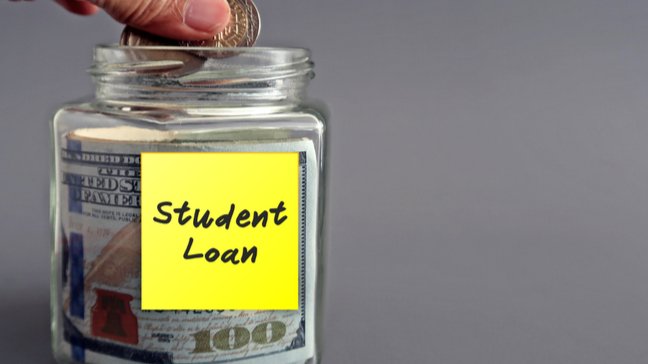
Repayment options are flexible (especially for federal loans) and can change as your life situation changes.
You can apply for deferment or forbearance — a period of time where you don’t have to pay back the loan — on federal loans and some private loans. If you have an unsubsidized loan, the interest will keep accumulating during deferment.
Paying back Federal Student Loans
If you have federal loans, you won’t need to pay them back as long as you’re in school at least half time. You can start paying back early if you choose. There are no prepayment penalties.
After graduation, you’ll usually have a six-month grace period before your repayment schedule begins. Then your lender will ask you to choose a repayment option.
Each option requires you to pay a different amount per month. The more you can pay per month, the less you’ll pay overall.
Remember the daily interest formula above — if you make larger payments, you’re chipping away faster at the unpaid principal, which results in less accrued interest. By the same token, if you make smaller payments, you’re likely to pay more money overall, since the interest will add up.
The repayment plans below apply to every federal loan except Perkins Loans. If you have a Perkins Loan, the school (your lender) should inform you about repayment options, which will vary.
Standard Repayment Plan
You pay a fixed monthly amount with the goal of paying your loan off in 10 years (30 years for a Direct Consolidation Loan, which tends to be larger).
Graduated Repayment Plan
You start out with smaller payments, which then increase every two years — again, with the goal of paying off the loan in 10 years (30 years for a Direct Consolidation Loan).
Extended Repayment Plan
You pay monthly on a fixed or graduated plan with the goal of paying the loan in 25 years. This option is only available to borrowers with $30,000 or more in debt.
Revised Pay As You Earn Plan (REPAYE)
Your payments are capped at 10% of your discretionary income. Discretionary income is the difference between your income and 150% of the poverty guidelines for your state and family size.
Income-Based Repayment Plan (IBR)
You pay, monthly, either 10% or 15% of discretionary income, based on the date you received your first loans. You’ll never pay more than what you would have paid under the standard plan.
With this plan, the amount of your payments is reassessed every year based on how your income and household have changed. After 20-25 years, any outstanding balance on your loans will be forgiven.
Income-Contingent Repayment Plan
Each month, you’ll pay the lesser of 20% of your discretionary income or the amount you’d pay monthly with a fixed payment over 12 years. Payments are recalculated each year based on your income and family size. Any amount not repaid in 25 years will be forgiven.
Income-Sensitive Repayment Plan
You make monthly payments based on your annual income for up to 10 years.
If you find you can’t afford your payments, get in touch with your loan servicer and see if you can switch to a more affordable plan. Nonpayment will hurt your credit and may eventually lead to default.
Paying Back Private Student Loans
Immediate Repayment Plans
Some private loans may require payment while you’re in school, but this isn’t cut and dried. You may find that you can pay interest only or make a reduced payment during the time you’re in school. Some private loans require that you make the same full payments whether you’re still in college or not.
Deferred Repayment Plans
Many private lenders now let you delay payment until graduation. You may even find they give you a grace period of six months or longer after graduation to start making payments. This can help take some of the pressure off while you’re looking for that first job.
Flexible Deferment Plans
With some lenders, you can occasionally skip a payment or put off paying for a while when you’re going through a tough time. Another benefit you may get with some private loans is the ability to renegotiate (refinance) a high variable interest rate.
Refinancing student loans
Refinancing a loan is when you replace your current loan with a new loan that offers more favorable terms. Whether you have a private or federal student loan, refinancing is always an option.
Refinancing is particularly attractive when your new loan offers a significantly lower interest rate than your existing loan. But it can also be a good idea if you have multiple loans that you want to combine into one, as it’s easier to stay on top of only one payment.
When considering refinancing, it’s important to take a close look at any fees you’ll be charged. While you can save on interest by refinancing, hefty origination fees might eat into those savings considerably.
» MORE: Student Loan Refinancing Options
Summary
As tuition skyrockets and a college degree becomes more necessary for a middle-class life, student loans play a bigger and bigger part in most people’s financial lives.
Student loans can be scary, overwhelming, and painfully tedious to contemplate. But knowing what you’re getting into — in terms of interest rates and repayment plans — can take some of the terror out of borrowing large sums to finance your future.
